A villa for an art collector blends geometry and rich materials into a spectacular beachside site
WORKac’s Papillon is a villa for an art collector on the shores of the Mediterranean, providing privacy, planting and hanging space for a Lebanese family
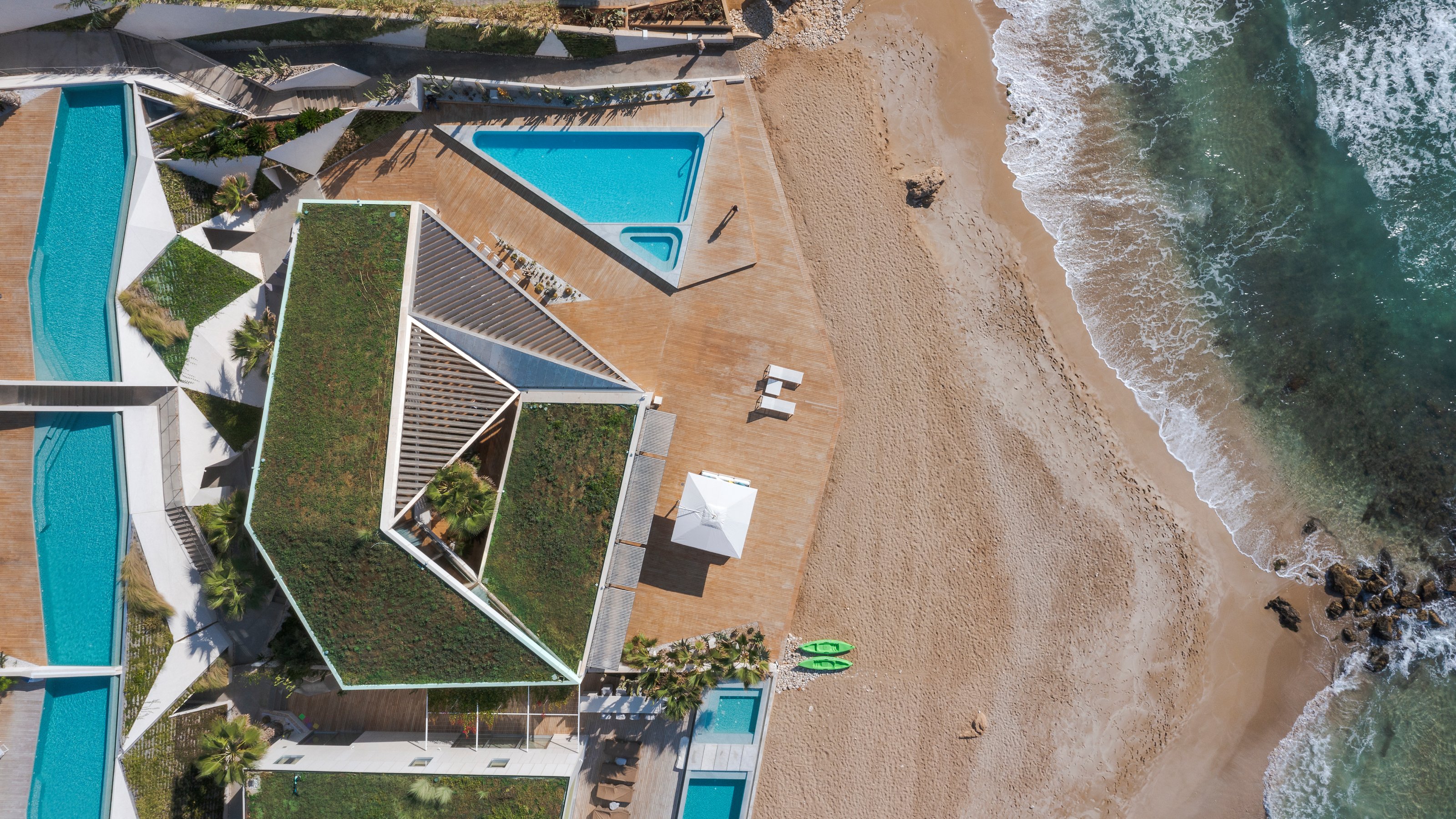
Receive our daily digest of inspiration, escapism and design stories from around the world direct to your inbox.
You are now subscribed
Your newsletter sign-up was successful
Want to add more newsletters?
This spectacular villa for an art collector is perched on the edge of the beach in the Lebanese town of Batroun, about 50km north of Beirut. Villa Papillon, so called because of its butterfly-like arrangement of folded roof planes and angles, was designed by WORKac, a New York-based architecture studio founded by Rhode Islander Dan Wood and Beirut-born Amale Andraos. The project architect for the scheme was Maurizio Bianchi Mattioli.
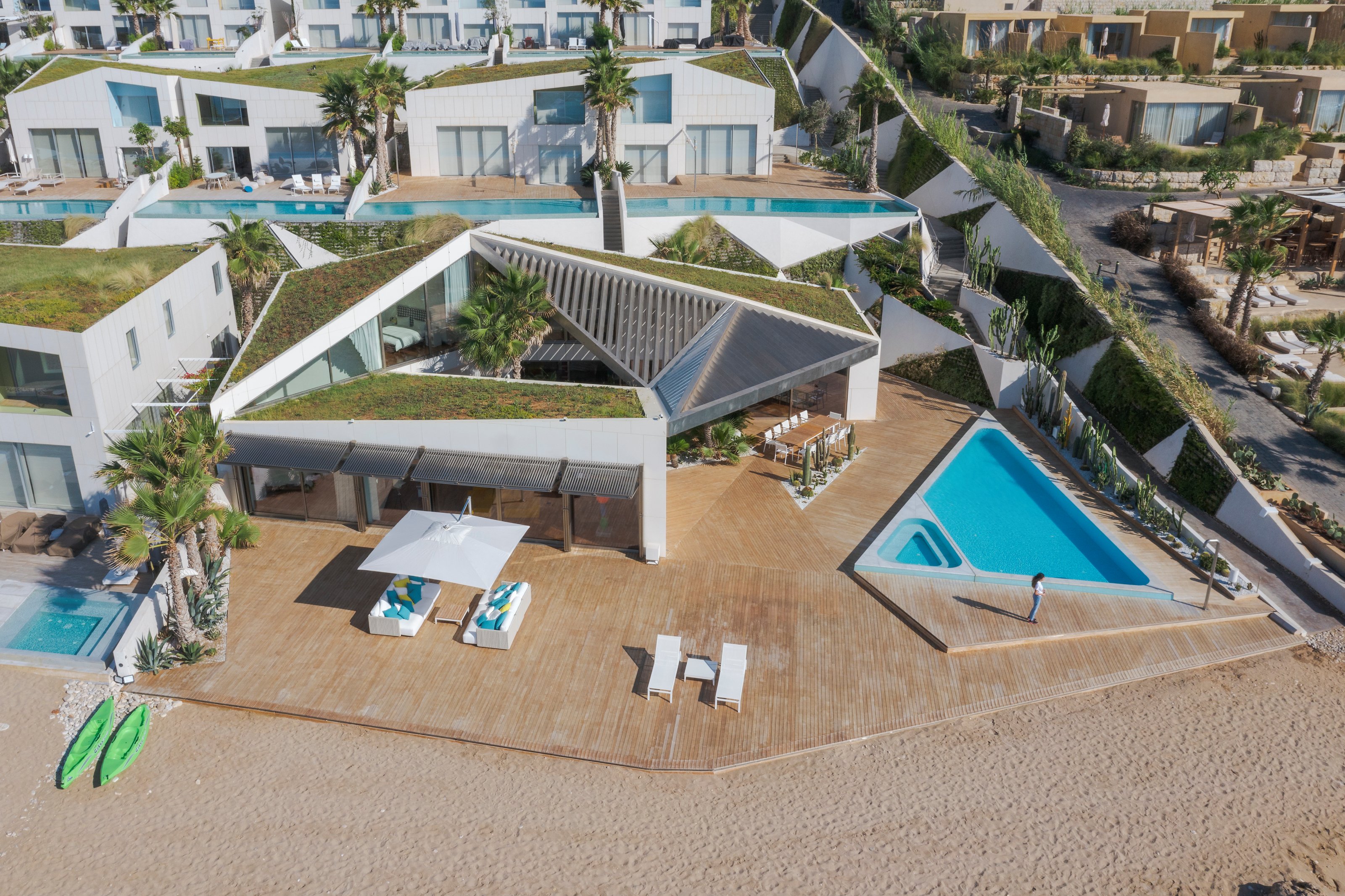
The beach façade, Villa Papillon, Lebanon, by WORKac
Papillon: a villa for an art collector
Making the most of the site, the house is centred on a large open-air courtyard, off which the main living spaces can be accessed, giving them all a view across the Mediterranean. As the architects note, the villa ‘rethinks the relationship between art, architecture and landscape,’ ensuring at the same time that there is plenty of protected hanging space for paintings, as well as bold material and structural choices.
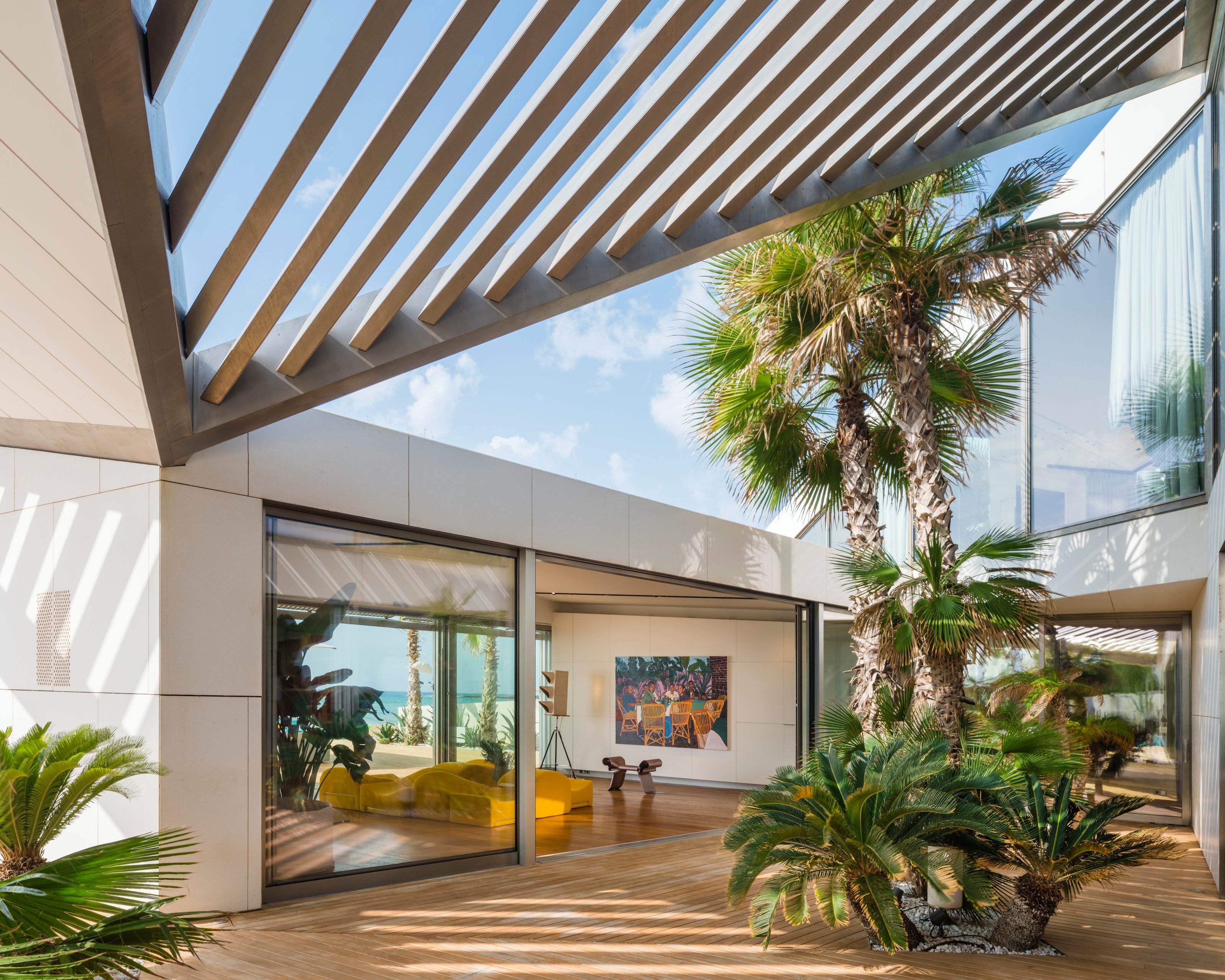
Internal courtyard, Villa Papillon, Lebanon, by WORKac
The principal bedroom is also located on the ground floor, while the children’s bedrooms are set on the floor above, giving them an unobstructed sea view. A specially made epoxy-resin-painted steel staircase with lacquered-wood walls leads up to these rooms.
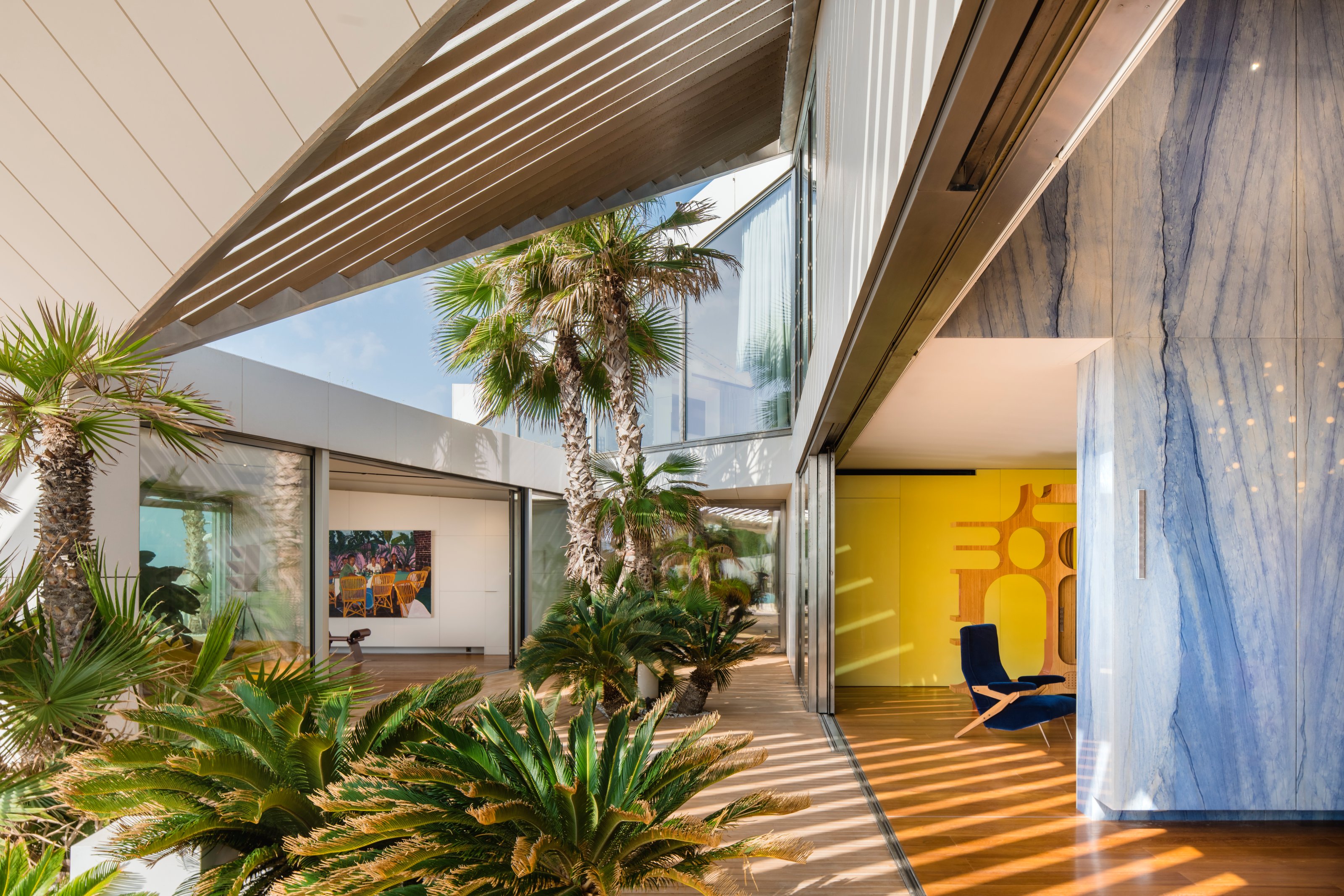
Internal courtyard, Villa Papillon, Lebanon, by WORKac
Villa Papillon is designed for privacy, with a solid rear façade that gives little away. Within, as well as the direct beach access, an expansive deck wraps around the seafront, with a triangular swimming pool inset in one corner, lined with Bisazza glass mosaic tiles and surrounded by a coping of Carrara marble.
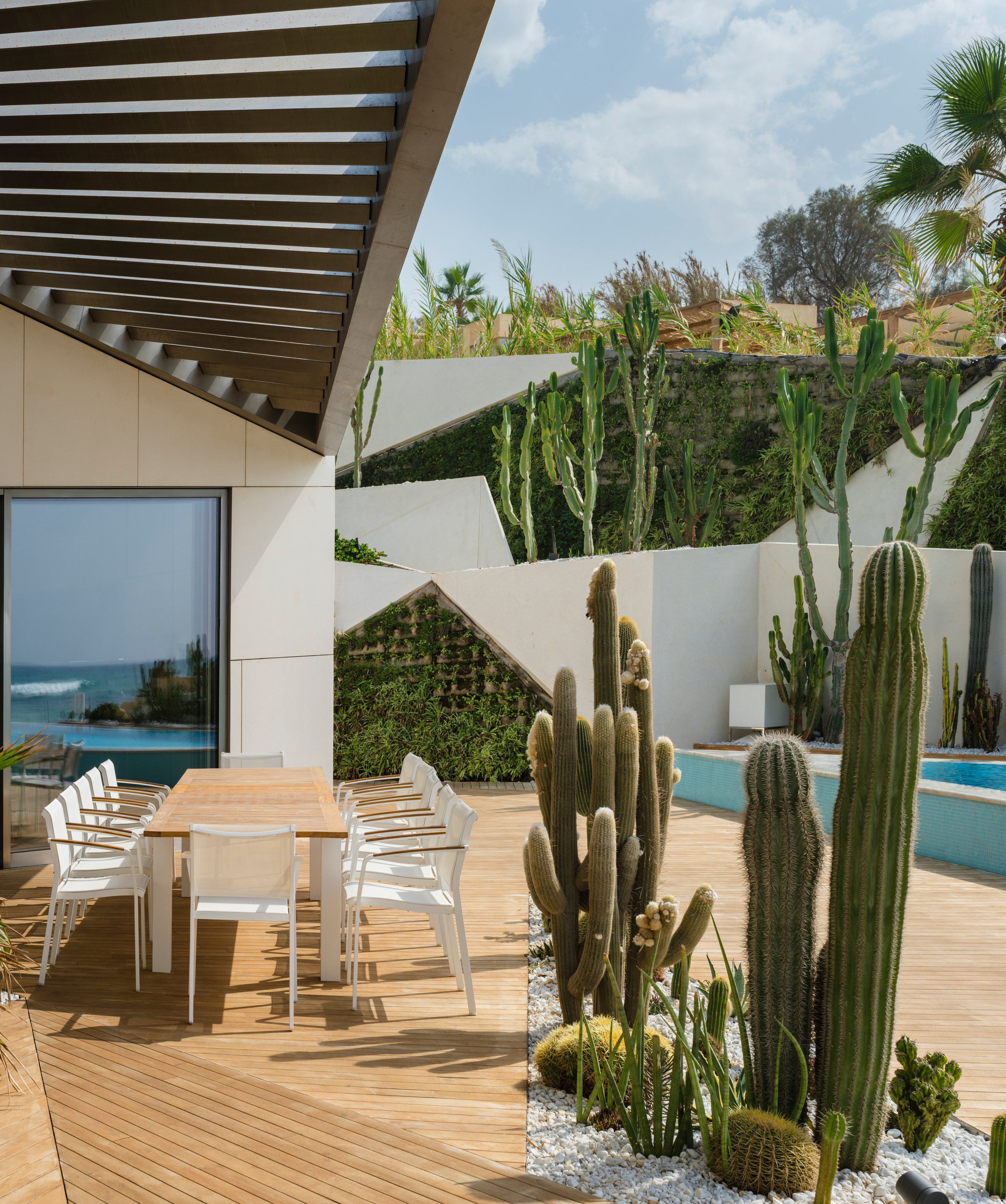
The terrace, Villa Papillon, Lebanon, by WORKac
Interior surfaces use a variety of bold materials and colours, including an accent wall in the dining room clad in azul macaubas quartzite, and gold-leaf fluted glass panelling and onyx copper marble on the kitchen walls and island. Kitchen cabinetry is by Toncelli. The architects also designed the custom wall unit in the family room.
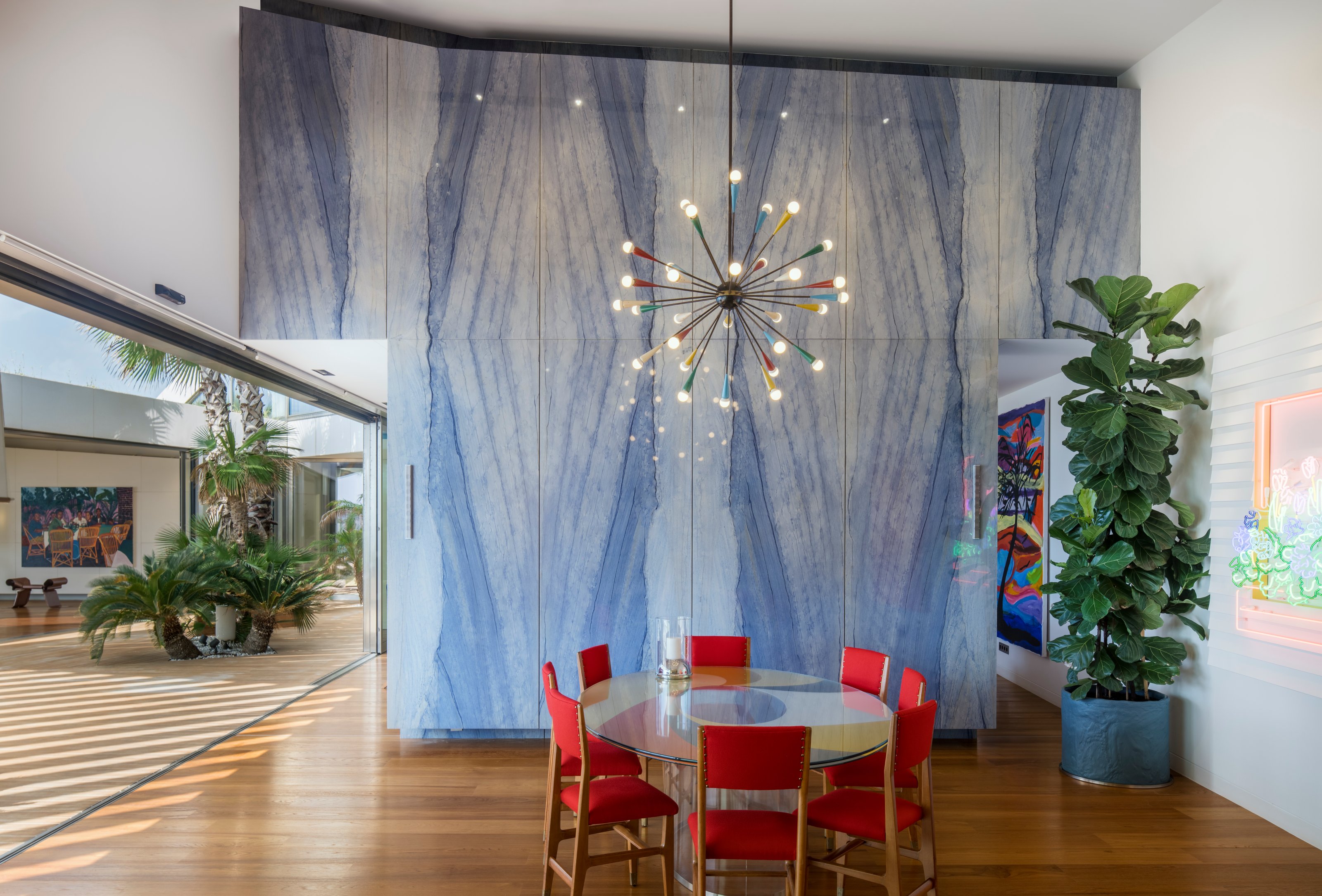
Dining room accent wall, Villa Papillon, Lebanon, by WORKac
Nestled into the ground at the base of a shallow hill running down to the sea, Villa Papillon is surrounded by a garden formed from a faceted white retaining wall that incorporates planters for added screening.
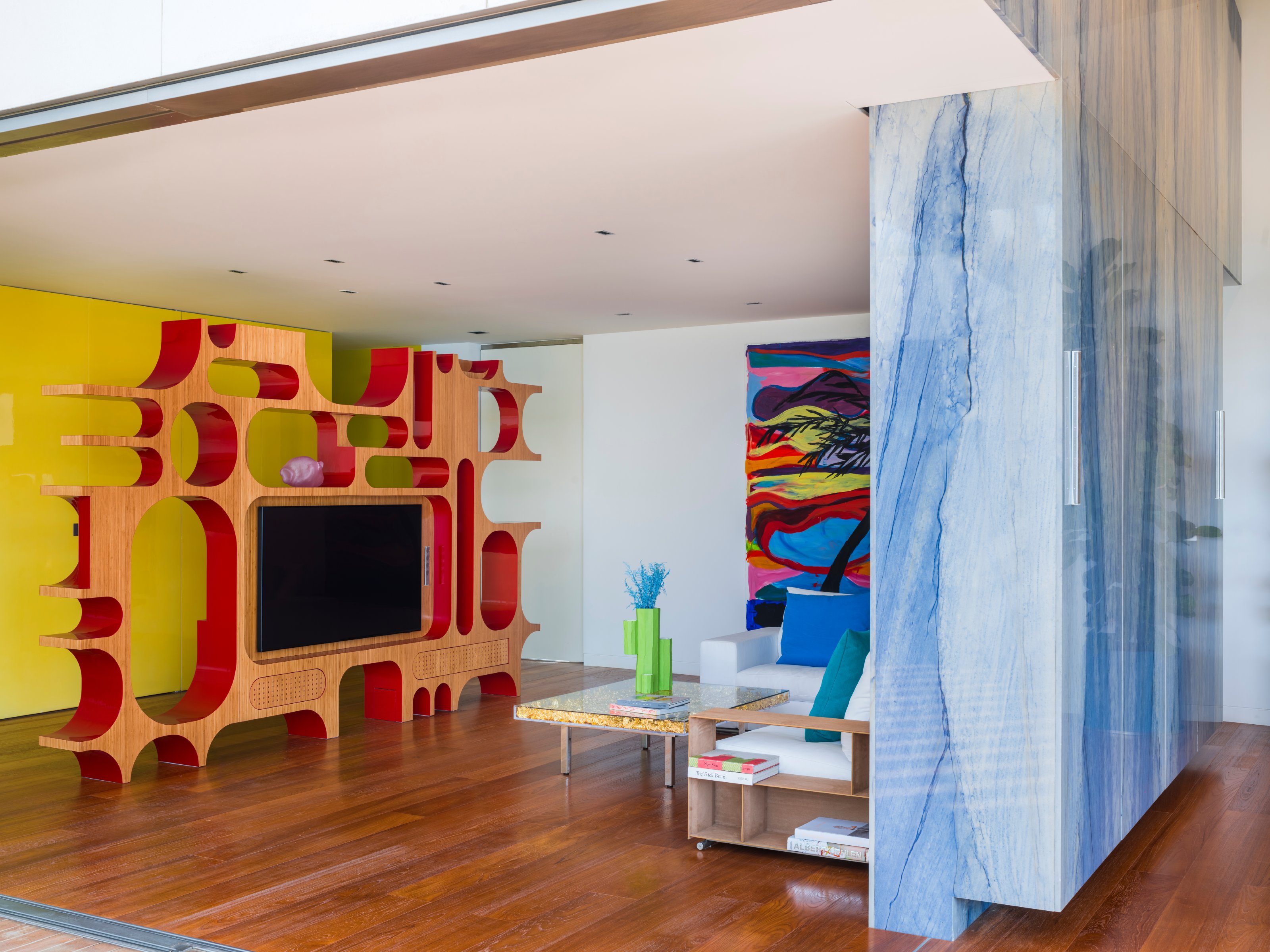
Custom wall unit by WORKac
A green roof wraps around the courtyard, with an aluminium and steel trellis providing shade throughout the day. Triangular forms feature strongly throughout, a key design theme that gives Villa Papillon a strong identity to juxtapose with bold pieces of art and furniture.
Receive our daily digest of inspiration, escapism and design stories from around the world direct to your inbox.
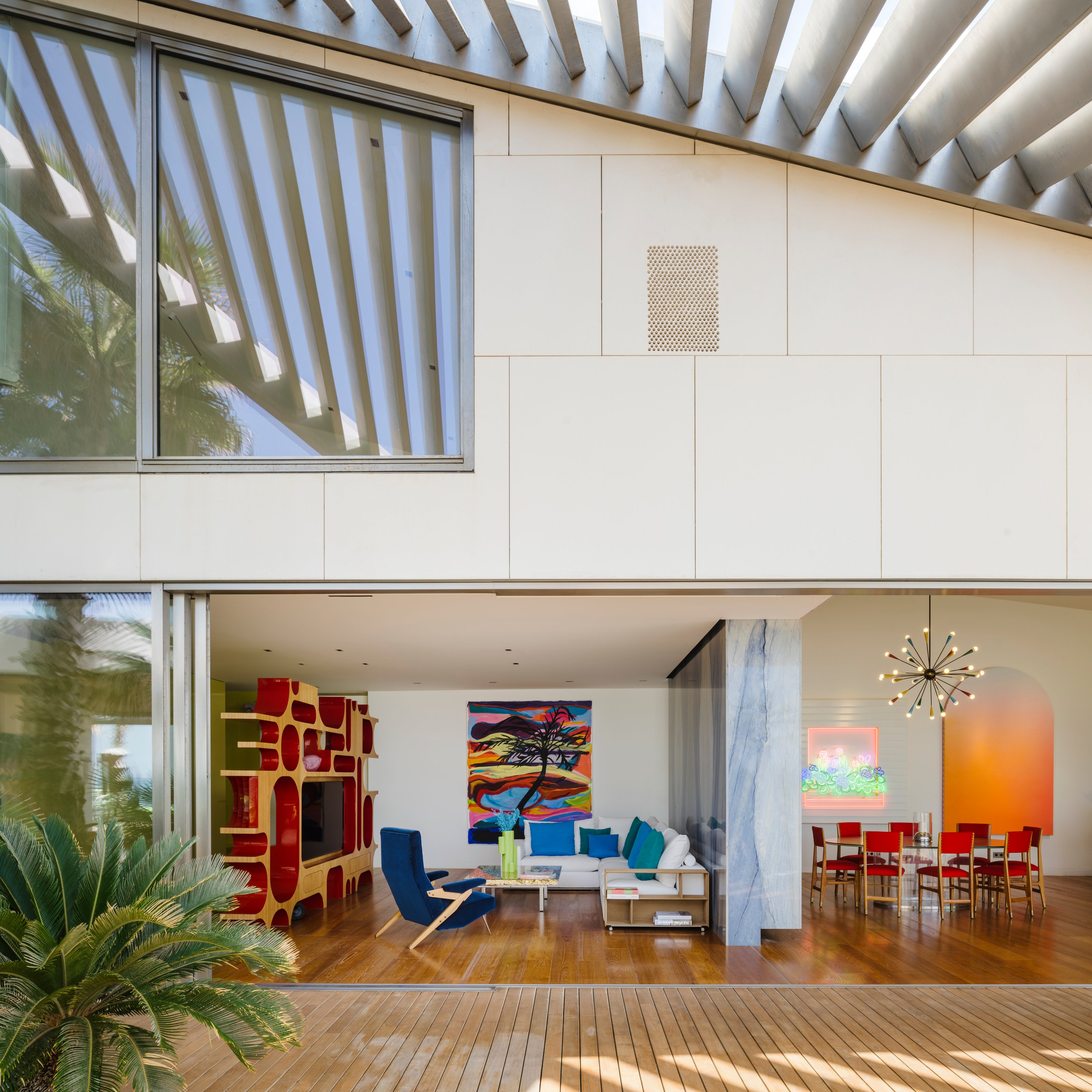
Villa Papillon, Lebanon, by WORKac
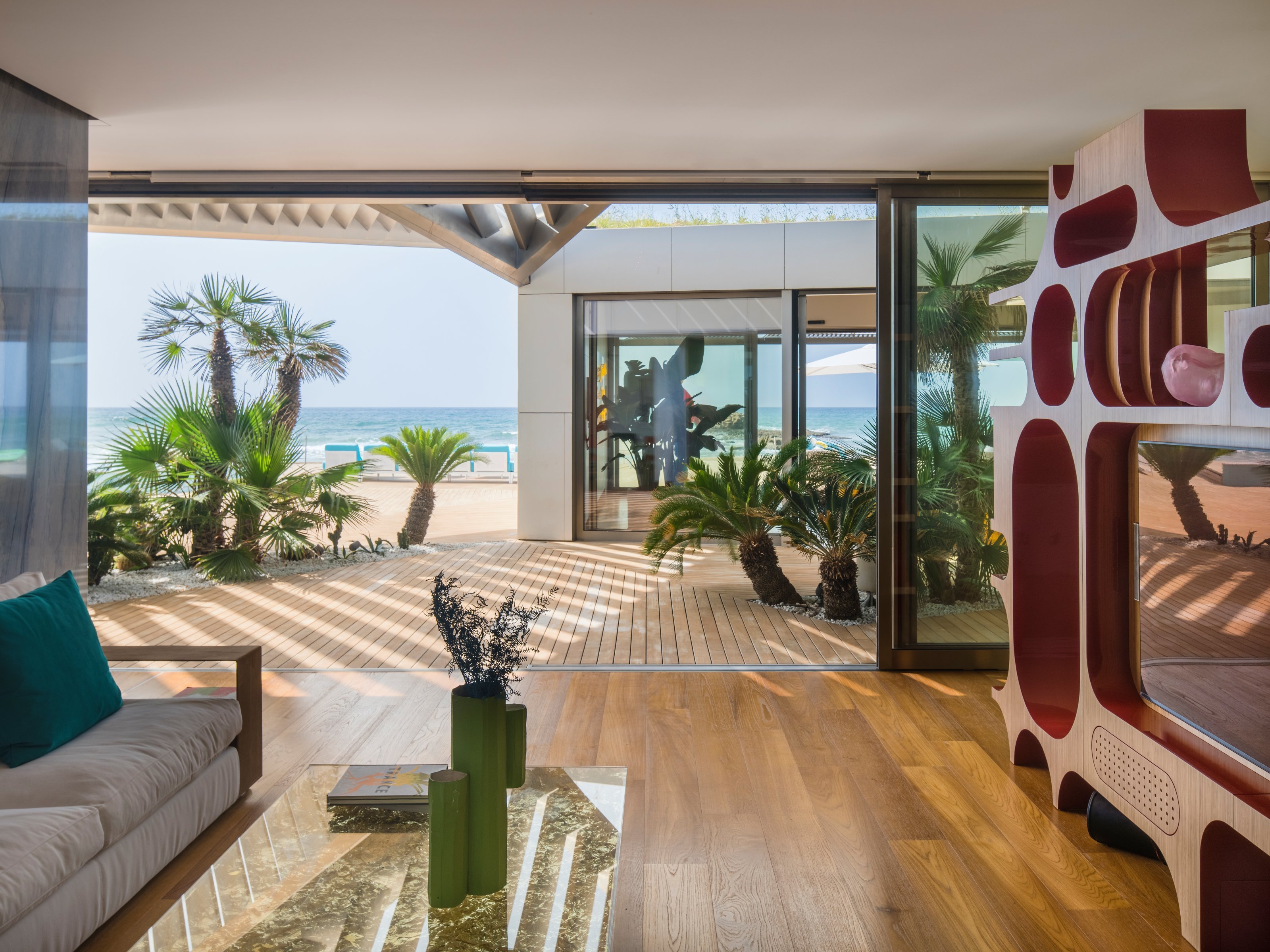
Looking out to sea, Villa Papillon, Lebanon, by WORKac
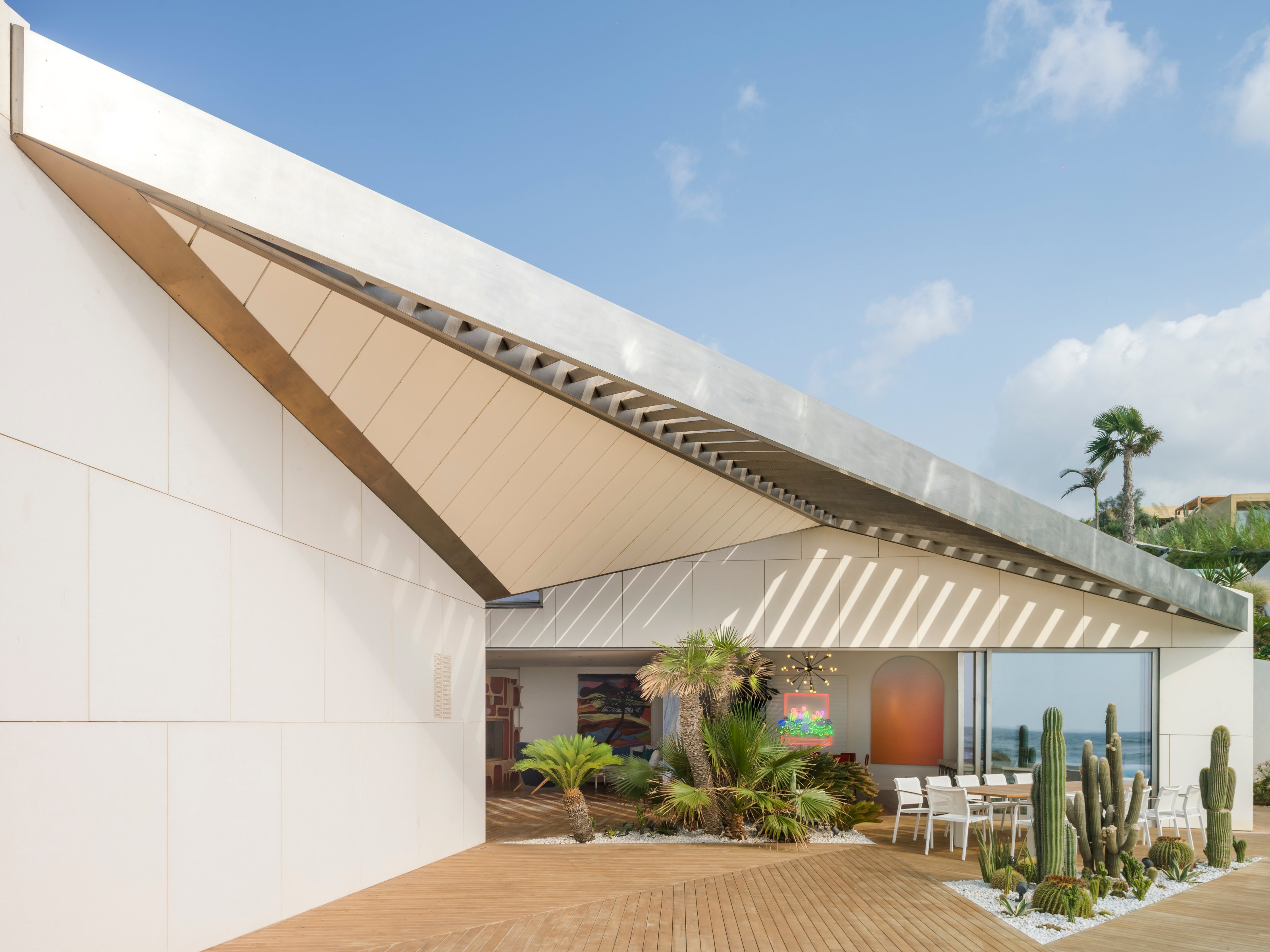
Villa Papillon, Lebanon, by WORKac
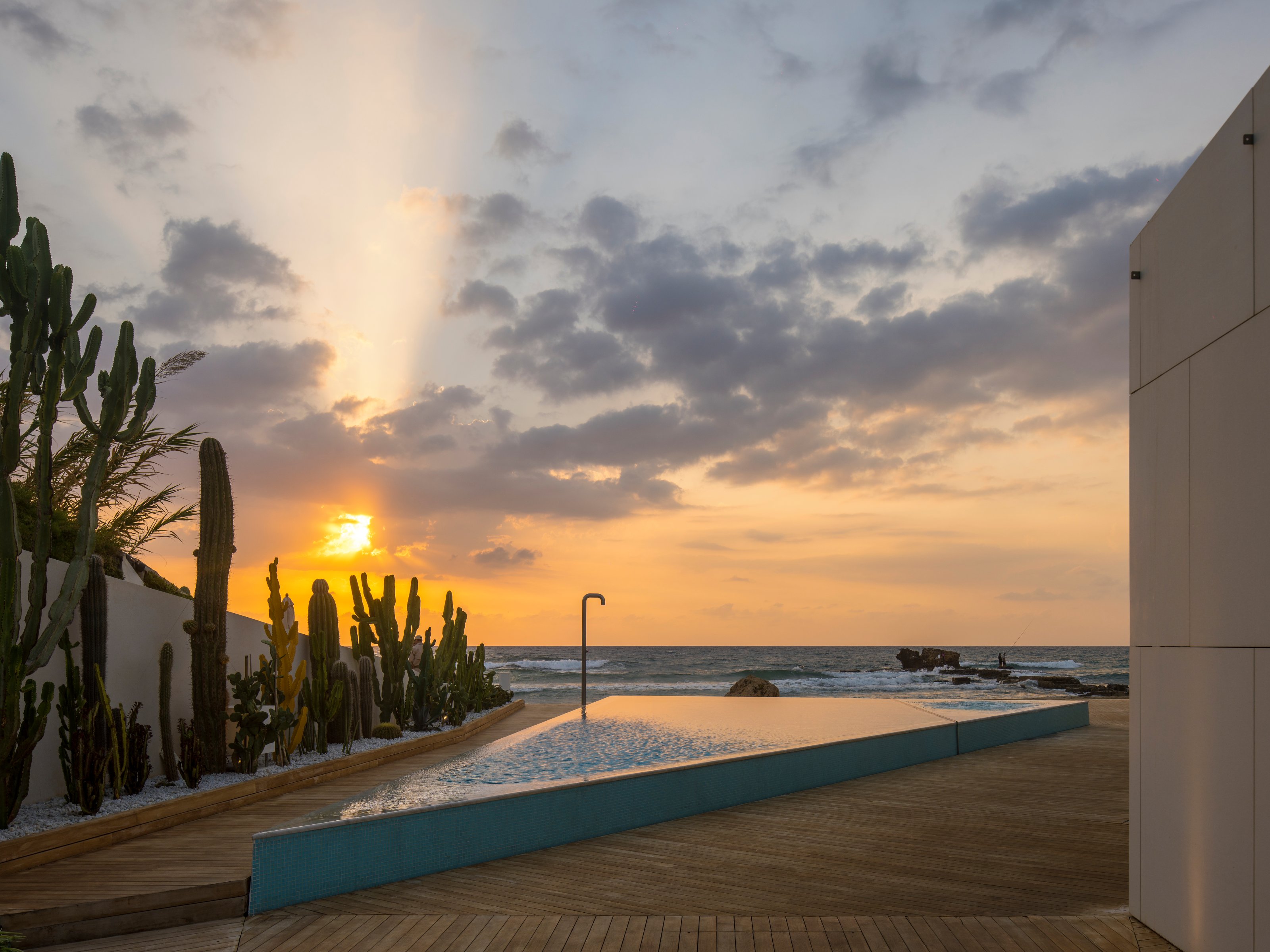
Villa Papillon, Lebanon, by WORKac
Jonathan Bell has written for Wallpaper* magazine since 1999, covering everything from architecture and transport design to books, tech and graphic design. He is now the magazine’s Transport and Technology Editor. Jonathan has written and edited 15 books, including Concept Car Design, 21st Century House, and The New Modern House. He is also the host of Wallpaper’s first podcast.